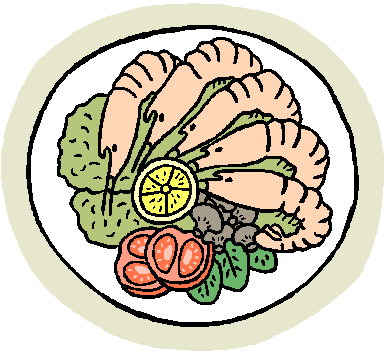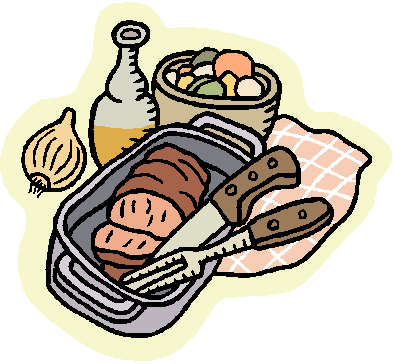Are you interested in healthy eating and having a balanced diet??? If so, you'll want to learn more about food groups.
This section helps explain the food groups based on the Dietary Guidelines for Americans, 2010 and provides information about food plans. There are five groups consisting of vegetables, fruits, grains, dairy and a protein group which includes meat, poultry, fish and nuts.
What are the basic food groups?
VEGETABLES
The vegetables you eat may be fresh, frozen, canned or dried and may be
eaten whole, cut-up, or mashed. You should eat a variety of dark green, red and orange vegetables, as well as beans and peas (which are also considered part of the protein group). Examples include broccoli, carrots, collard greens, split peas, green beans, black-eyed peas, kale,beans, potatoes, spinach, squash, sweet potatoes, tomatoes and kidney beans. Any vegetable or 100% vegetable juice counts in this group.
FRUITS
The fruits you eat may be fresh, canned, frozen or dried and may be eaten whole, cut-up, or pureed. Examples include apples, apricots, bananas, dates, grapes, oranges, grapefruit, mangoes, melons, peaches, pineapples, raisins, strawberries, tangerines, and 100% fruit juice.
GRAINS
There are two types of grains – whole grains and refined grains. At least half of the grains you eat should be whole grains, such as whole-wheat bread, whole-grain cereals and crackers, oatmealand brown rice. Refined grains include white bread, white rice, enriched pasta, flour tortillas, and most noodles.
DAIRY
Most of your choices should be fat-free or low-fat milk and milk products, but all milks and calcium-containing milk products count in this category. Examples include milk, cheeses, and yogurt as well as lactose-free and lactose-reduced products and soy beverages. Foods that are made from milk but have little or no calcium are not included, such as butter, cream, sour cream, and cream cheese.
PROTEIN FOOD
Choose a variety of lean meats and poultry, seafood, beans and peas, eggs, processed soy products, unsalted nuts, and seeds. Make sure to eat at least 8 ounces of seafood each week.
The amount of food you need to eat from each group depends on your age, sex, and level of physical activity
Healthy Daily Meal Plan


Number of servings | Total servings of grains | |||
Breakfast | ||||
| 2 | |||
| 1 | 3 | ||
| ||||
Morning snack | ||||
| 1 | 4 | ||
Lunch | ||||
| 2 | 6 | ||
| 1 | 7 | ||
| ||||
Afternoon snack | ||||
| 1 | 8 | ||
| ||||
Dinner | ||||
| ||||
| 2 | 10 | ||
| 1 | 11 | ||
|






No comments:
Post a Comment